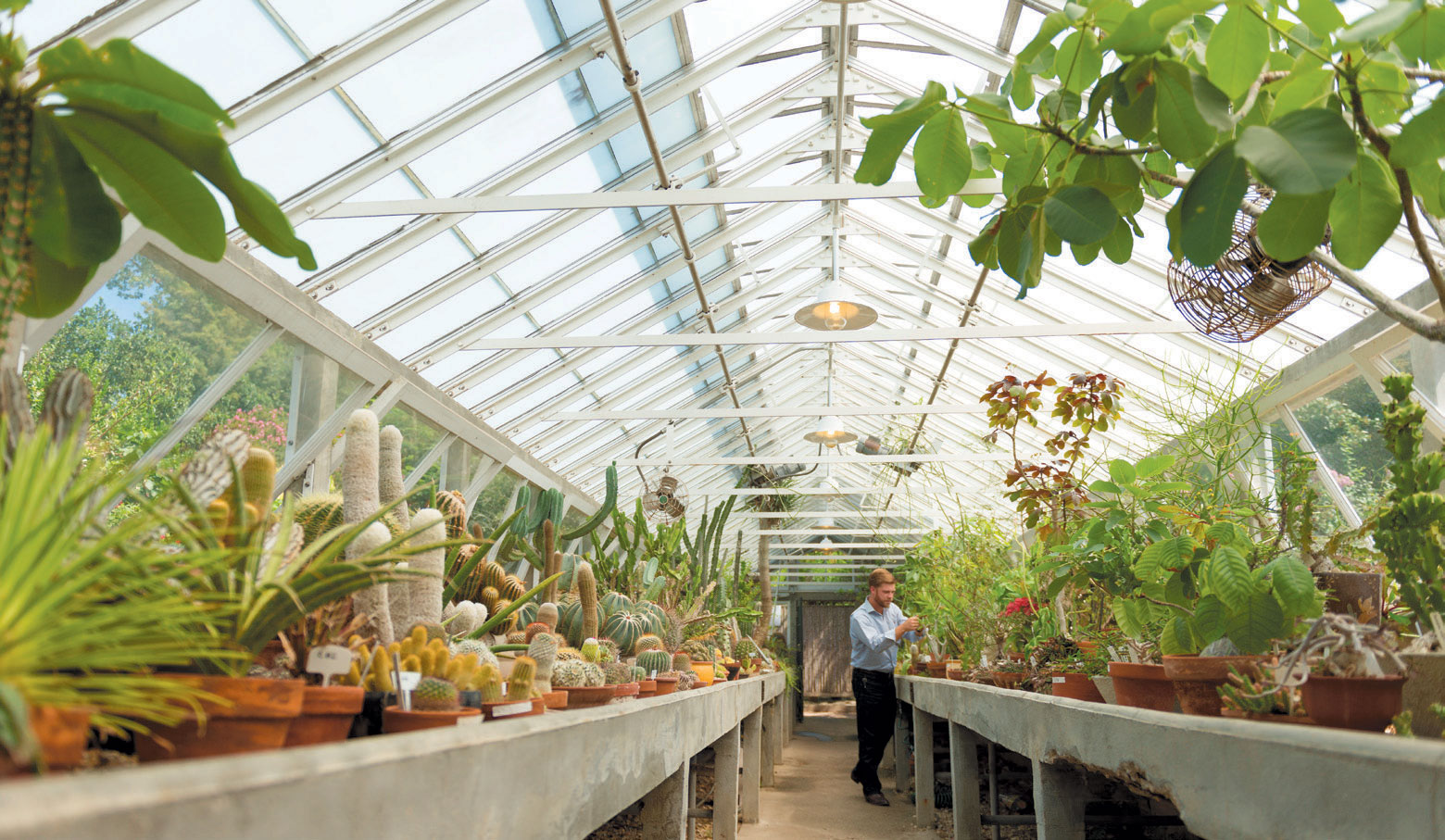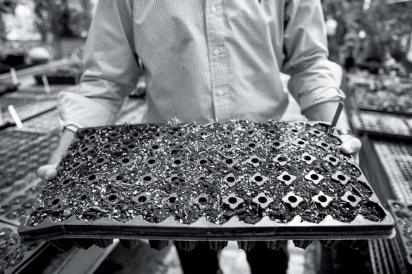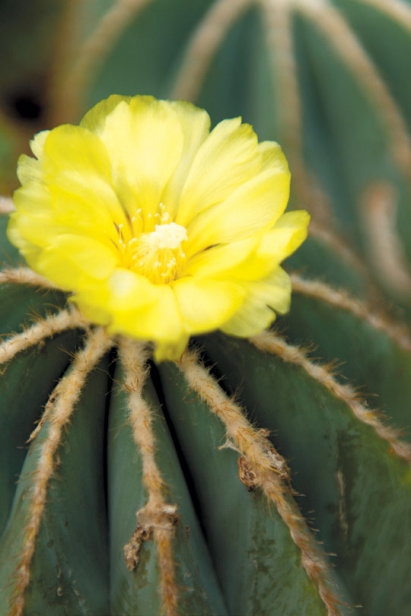LSU Ag Center: Research, Service, Education
Gardening is one of the nation’s favorite pastimes, but first-time gardeners often don’t know where to start, turning to online resources that provide scant or, worse, false information.
With the ever-growing popularity of urban farming, the LSU Agricultural Center provides free and low-cost help to everyone from avid growers to those trying to turn their thumbs green. Orleans Parish Extension Agent Lee Rouse’s main focus is serving as a resource for Orleans Parish residents.
“I’m responsible for the education of the general public, with their agricultural needs, whether that be the homeowner or the local nursery,” Rouse explained. When most people hear the word “agricultural” they immediately think “cows, plows and awls”: cattle, big agriculture and forestry. However, the Ag Center also serves to answer homeowners’ general questions about what’s wrong with their lawn, a rose bush or their urban vegetable garden.
Cooperative extensions were formed in the 1860s as part of the federal government giving out land grants to universities such as LSU. The purpose of these grants was threefold: research, service and education. Master gardeners and volunteers assist the Ag Center staff, teaching classes and answering questions to ensure they are best serving the community.
“If we had to go see every single tree or every single bush we’d never be in the office being able to answer phone calls, so we have people that are capable of doing that,” Rouse said.
RESEARCH
The needs of different parishes dictate the type of research that is conducted throughout the state. While rural parishes have more citizens asking questions about the maintenance of 2,000 acres of sugar cane, the Orleans Parish Ag Center is more focused on small-scale urban farming.
Since there’s been an uptick in organic farming in recent years, the Ag Center’s quarter-acre lot on Tchoupitoulas, located near the foot of the Mississippi Bridge in front of Mardi Gras World, is assessing organic versus conventional growing. Rouse admited that there hasn’t been enough data produced at the university level about organic farming.
“There’s been a little bit, but not a lot and you can’t take conventional farming and compare it to organic farming. There are too many variables,” said Rouse. In order to change this, LSU recently did a study involving tomato plants: organic, conventional and a mixture of the two. The organic tomatoes grew slightly better, while the fruit grown in a mix of chicken manure and synthetic grew the worst.
This experiment produced a hundred pounds of tomatoes, too much food for the staff to eat by themselves. In keeping with the land grant’s service component, food grown on this lot is now donated to Café Hope and Café Reconcile, nonprofit organizations that work to provide restaurant skills to at-risk youth. The center regularly donates basil, rosemary and a wide array of peppers to the restaurants, which qualified them for Locavore’s annual Eat Local Challenge. A portion of the produce is given to Second Harvest Food Bank as well.
SERVICE
Rouse stresses the importance of testing soil before you start to grow. Most local nurseries can supply plant buyers with the Ag Center’s soil testing packet. Each packet includes a priority mail box and instructions on how to collect the soil for testing. The test costs $10 and provides information about eight nutrients and pH levels in the soil.
“It goes to Baton Rouge’s soil analysis lab, they plug it into their computer and do their magic there, then send a copy to the homeowner and a copy to me. It comes back with a bunch of numbers and a bunch of letters, chemical elements, pounds per hundred square feet, pounds per thousand square feet. If you don’t know what you’re looking at it’s very difficult to interpret and one of the things that goes on there is the account number, or the testing number. So they [the homeowner] can call me and I can tell them ‘You need to add this, you need to stop adding that, let’s do this with your soil.’”
In addition to testing for nutrients, Rouse strongly recommends testing for heavy metals.
“You don’t know what happened on that property before you got there. You don’t know if there was an oil spill or lead contamination,” Rouse said. “Vegetables have the ability to take up some of those heavy metals in their tissue, and we eat it. I don’t know what percentage it would have to be to be detrimental but you don’t want to eat that. And if there’s stuff in the soil we have ways of remediating that.
“The slogan for the LSU test lab is ‘Don’t guess, soil test,” because you may have a ton of fertilizer already there. You go to plant your plants and put out more, you’re going to kill it because of the toxicity, so that’s another reason. Sometimes you don’t even need fertilizer, so you can save yourself money.”
EDUCATION
Rouse takes a more proactive approach to the education and service aspect of his job. He updates the LSU Ag Center’s Facebook page with short blog posts every one or two weeks with a topic that’s pertinent to the climate and gardening during that growing season.
“I try to stick to more pathology problems, like fungal, bacterial, stuff that’s in your garden that’s happening now, so instead of getting 50 phone calls about the same question I can recommend an article,” Rouse explained. The Ag Center also develops classes and programs that people can attend for free, or a small fee, usually $3 to $5. Rouse is also available to do presentations for other local businesses.
“I’ve been contacted by a couple of farmers markets to give talks, for example, on how to start a vegetable garden for a home owner. I’ve also given talks on how to start a vegetable garden for schools.”
The Ag Center website is a veritable cornucopia of information, with everything from crop disease management and gardening tips to animal genetics and pest control. The center has developed four free mobile apps that identify issues with crops such as insects, disease and plant nutrition: Soybean Field Guide, Citrus Guide, Rice Scout and Fire Cast, which provides up to the minute information on risks of fire based on location. Of course, the basis of good food is good health.
“It’s not just about agriculture, but the well-being of people,” Rouse was quick to point out. The center employs nutrition agents that teach adults, children as well as parents dealing with children about the importance of vegetables as part of a nutritious diet. The website also has guides on such subjects as men’s health issues, tips for maintaining a food diary and dispelling myths about certain foods.
“Food is the base of your happiness, and your basic needs,” Rouse said.








